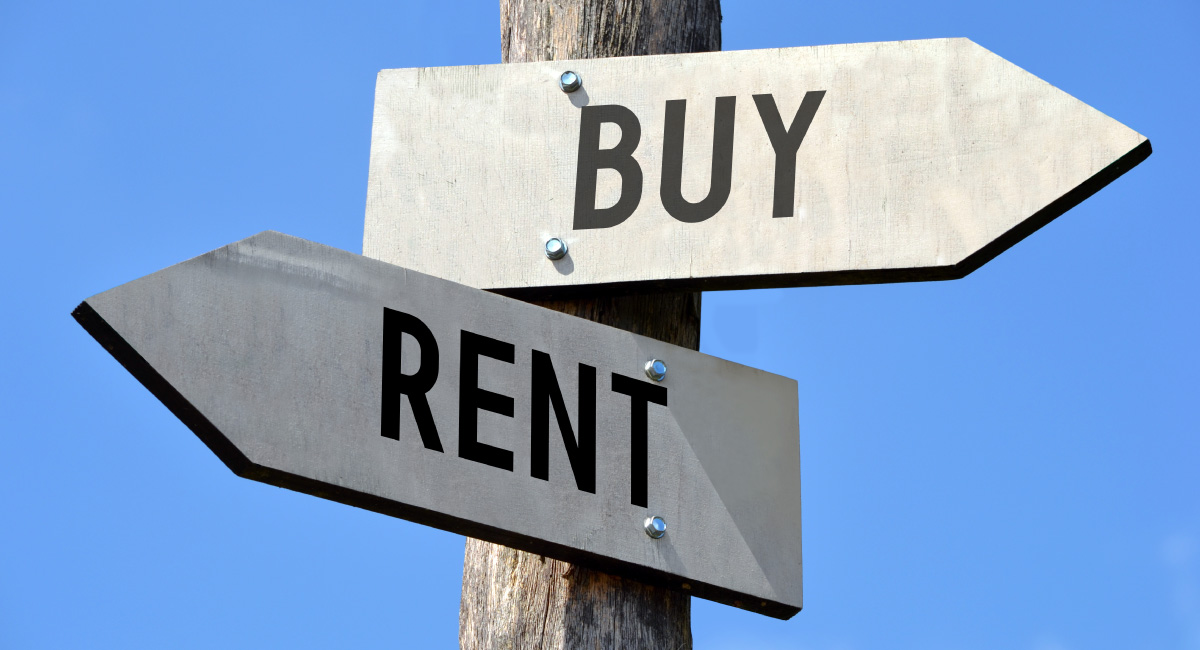What’s the first thing that springs to mind when you think investment? While stocks and shares make up a part of any healthy investment portfolio, real estate investment in Antigua is frequently touted as one of the most stable and reliable forms of investment you can make.
As a general rule, real estate investment is a predictable and improvable source of cash flow. Real estate will generally appreciate in value over time, coincide with retirement plans and often comes with juicy tax breaks.
In this article, Relocate Antigua lifts the lid on how to start investing in real estate in Antigua, offering up a no-nonsense guide to real estate investing for beginners. Read on, and let the good times roll!
The different types of real estate investment
Before we look at how to get into real estate investing, let’s take a closer look at the many ways to invest in real estate. The truth is there are lots of types of real estate investment, going well beyond simply deciding to buy a home and generating rental income. There’s no one single best way to invest in real estate – it all depends on your investor profile and priorities.
There are a host of different ways you might want to invest in real estate, from real estate investment banking to crowdfunding real estate investment. We’ve picked our top three most accessible routes to kickstarting your property portfolio. Short on time? Check out our at-a-glance table for a quick and easy overview of your options.
| Advantages | Disadvantages | |
| Rental property | Tax-deductible expenses Add value through DIY and minimal outlay Value appreciation | At the mercy of your tenants and market prices Taxes, fees Time-consuming |
| REIGs or REITs | Zero hassle Minimal experience and knowledge required Continuous income and appreciation | At the mercy of your managers Potentially high fees Risk of low vacancy |
| Raw land | No immediate outlays Less competition from other buyers More affordable and outright ownership through cash purchases: ideal for investors wondering how to invest in real estate with no money Simplicity and no middlemen Freedom | No immediate cash flow Complex planning permissions Permit and approval paperwork No utilities |
Adding value and deducting expenses with rental properties
Advantages:
- If you’re reasonably confident in your home improvement and DIY skills, this can be an excellent opportunity to snap up a property, do it up, and then sit back and collect your rental payments.
- In a sense, this is commercial real estate investing for dummies! You’ll be drawing on seasoned professionals and their experience and knowledge of the property market.
- You’ll also find that in many tax systems, when you buy a property you’ll be tapping into a bunch of tax-deductible expenses, too.
- The rules of property value growth mean your property will increase in value over time, even if you decide not to renovate or upgrade your home.
- If you’re handy with a paintbrush and drill, you’ll be adding to the value of your home with minimal financial outlay.
Disadvantages:
- Because property prices globally have tended to sky-rocket over the past few decades, for many people choosing to buy a home means concentrating all their wealth and assets in a single place. This is essentially the opposite of portfolio diversification. While the value of your property could rise, it could equally tumble if the area, city, or country you find yourself in crashes.
- As a landlord, you’ll find yourself at the mercy of your tenants. A large part of your wealth relies on renting your property to solid, dependable payers. If your tenant refuses to pay up, you could find yourself in a vulnerable position, and out of pocket. While tenants are replaceable, you could find yourself in a long, uphill legal battle to have them removed.
- Your bank account can take a blow under the pressure of taxes and fees, despite the many tax-deductible expenses you can use to offset your tax bill.
- When you own a rental property, be prepared to have to work for it. Leaking pipes, flooding, electricity issues and overgrown gardens – if you can’t handle these DIY tasks yourself, you’ll need to pay a lettings agency to take care of these matters for you, meaning yet more expense.
Taking it easy and outsourcing the legwork with REITs
Advantages:
- Real estate investment trusts (REITs)are sometimes called real estate investment groups (REIGs) or real estate investment funds, and take the hassle out of owning property. The company owns the property (generally commercial real estate such as office blocks and shopping malls), and goes through the intricacies of ownership so you don’t have. An excellent choice for investors seeking minimal input. You can own one or multiple units, but the company takes care of managing the bigger picture.
- Because you have the pooled resources of other investors behind you, in addition to the clout and infrastructure of the fund, you’re able to invest in larger-scale properties than you would if you were operating alone.
- You can expect the same continuous stream of income and value appreciation you would see from owning a rental property, albeit on a larger scale.
Disadvantages:
- While not at the mercy of a tenant, in this scenario you would be well advised to pick your REIT carefully. Assessing the level of competency of the managers tasked with handling your investment is crucial.
- Just as buying a rental property leaves you open to the risk of non-paying tenants, with REITs you run the risk of dealing with low-vacancy issues. In many respects, this again comes down to choosing your REIT wisely.
- Read through the terms and conditions of your scheme carefully so as not to be caught out by the often-hefty fees.
Starting from scratch and embracing total freedom with raw land
Advantages:
- Buying raw land means just that: purchasing a plot of land that has had zero improvements or renovations done to it. This means that you in turn won’t need to put your hand in your pocket any further. Forget about surprise jobs and urgent repairs. What you see is what you get.
- Because raw land requires more effort and outlay to turn over, there’s less market competition for the space.
- If you’re wondering how to invest in real estate with little money, then look no further. Land is generally much, much cheaper than built-on plots and properties, making this an excellent choice for investors starting from scratch.
- There’s a simplicity to buying raw land that can be highly appealing. These purchases are often made for cash, cutting out middlemen and mortgage providers, and you can also buy land ‘on spec’, without ever having seen it in person. Buying your land outright in cash gives you total ownership over your property.
- Raw land is a blank canvas, giving you complete freedom to transform it as you see fit.
Disadvantages:
- Unlike a rental property, with raw land you’ll need to sit tight and wait before you start tuning any cash flow. At the same time, you’ll still be liable for some taxes.
- Meticulous research into planning permissions is required here. You’ll lose out if you buy land and then find it’s impossible to develop – or sell on.
- Prepare for paperwork on a massive scale. From planning permits to development approvals, the admin aspect of buying raw land can be off-putting if time is of the essence.
- A lack of utilities can rapidly eat into your budget. You run the risk of shelling out for piping, water and electricity, thereby negating any savings you may have made elsewhere.

Getting started in real estate investing: first steps
Once you’ve done your research into the different real estate investment opportunities out there, it’s time to put together a plan.
Follow our step-by-step guide to getting the ball rolling.
Read, research, and save
Irrespective of the type of real estate investment you think you might be interested, the first stage is to start setting money aside and getting informed. Read how-to guides, scour the internet for real estate investing tips, and speak to accredited investors and market experts for their thoughts. Don’t forget that Relocate Antigua specializes in real estate consultancy and talking our clients through the investment programs open to them.
Pick up the phone and draw on our teams’ expert insights into the right real estate moves for you.
Attend webinars and dip into some of the incredible real estate investing seminars out there. REWW (Real Estate World Wide) offers an amazing investor’s digest, as well as a line-up of the best seminars and summits around. The Covid-19 pandemic has meant many of these events have shifted online, so keep an eye out for updates as new dates and tweaks are updated. We particularly love the REWW Academy, essentially a crash course in all things property investment that you can tailor depending on your current level of understanding and business acumen.
Pick one investment strategy
If you’re just starting out, the range of investment opportunities out there can be daunting. We advise picking an initial real estate investment style that seems both appealing and viable to you, and focusing on that before diversifying. When it comes to investment, it’s always smarter to be a master of one technique, rather than a jack of all trades. Get really good at house flipping before dipping your toes into mutual funds, for example.
Take it slow
If you think rental properties might be for you, start small. Try renting out a room in your own property first, so you can get to grips with handling contracts, late payments, and any number of the everyday obstacles you’re likely to face as a large-scale landlord. If buying a plot of land seems more up your street, invest in expert services to get the ball rolling, and set your ambitions relatively low to start with. Get a feel for the ground and learn to walk before you fly.
Network like crazy
So many amazing opportunities you won’t find listed or advertised anywhere: it’s all about who you know. Deepen your local connections and contacts, and surround yourself with professional experts in every aspect of real estate investment. You never know when knowing someone can come in handy. Use this time to soak up all the information you can glean from people who have spent years in the game.
Real estate investment companies
Some of the best real estate investment companies out there are breaking down borders and taking the property industry global.
We talk you through our favorites to get you started.
iintoo: seamless project management and state-of-the-art features
A premium real estate investment platform that is open to accredited investors. The secret to iintoo’s success lies in its rock-solid project management features. The platform does all the financial and strategic homework so you don’t have to, and lets you start investing for a mere USD$25,000. With over 200,000 members to its name, iintoo is leading the way in innovative, cutting-edge services for up-and-coming real estate investors.
DiversyFund: low starting investment and a 101 educational experience
A wealth-building tool and platform that aims to make multifamily commercial real estate investment accessible to all, with zero management fees, a minimum investment of just USD$500 and a jam-packed range of slick and seamless features. More than just a platform, DiversyFund is a community and educational experience that makes for the perfect starting place for the real estate investors of the future.
Relocate Antigua: turnkey investment guidance in a breath-taking destination
Home to some of the Caribbean’s leading qualified investment advisors, Relocate Antigua operates as a one-stop shop for new and experienced property developers and real estate experts looking to gain a foothold in Antigua and Barbuda’s thriving real estate market.
From buying properties in Antigua to selling properties in Antigua, and handling property management for real estate investors seeking to outsource the hassle and paperwork of renting their property out to tenants, Relocate Antigua offers a 360-degree experience for entrepreneurs aiming to grab a slice of the Caribbean dream, including start-to-finish management of your residency by investment applications.
Final thoughts: starting small and thinking big
Residential property and commercial real estate have always been highly appealing ways of diversifying investment portfolios and consolidating your financial future. While it can be tempting to throw yourself in at the deep end, the secret to making it as a successful real estate investor lies in laying the groundwork, doing your homework, and carefully combing through your options to come up with an investment strategy that works for you.
Talk to Relocate Antigua today for help in identifying the right platforms and options to suit your investor profile. We can also assist in getting you started in investment in hospitality and investment in medical cannabis, two booming sectors in the island nation of Antigua – all while handling your tax residency paperwork and any administrative tasks you might like to outsource.
For more information on investing in real estate in Antigua check out this article



